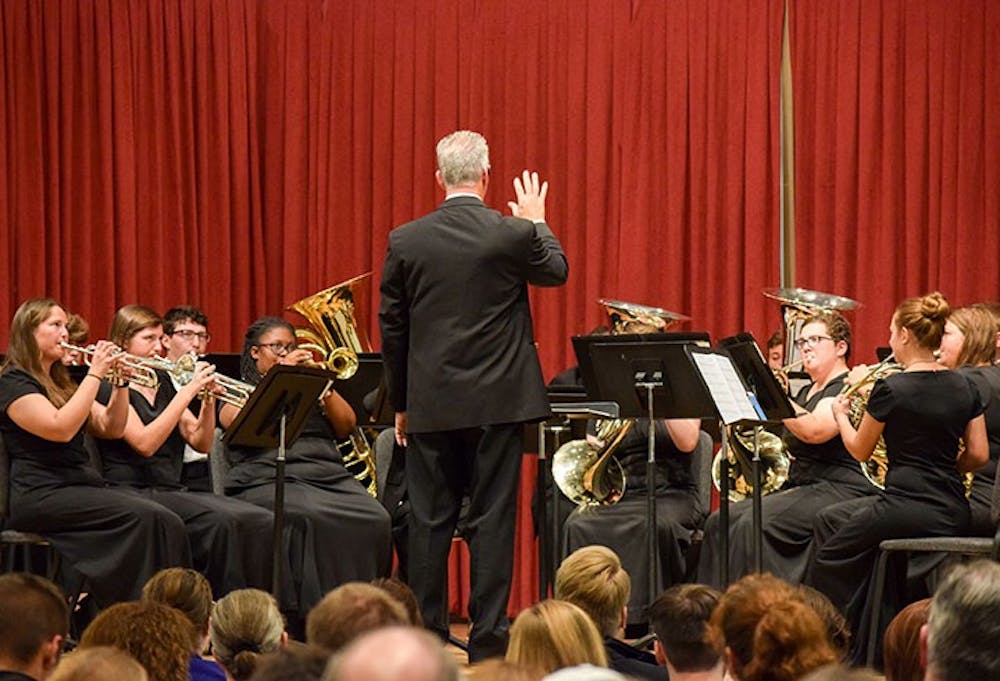Shippensburg University’s Brass and String Ensembles filled SU’s Old Main Chapel with beautiful music during their Fall Recital Sunday afternoon.
The brass ensemble, directed and conducted by professor Trever Famulare, opened the recital with the song “Salute to the USA” by Gordon Jacob. The song was a pleasant fanfare and was followed by two slow and beautiful legato pieces — an arrangement of “On a Hymnsong of Philip Bliss” and “Abide With Me,” a more traditional piece.
Famulare then shifted gears and moved onto the “Wedding of Kije,” a piece he described as different. Sure enough, the piece’s distinct melody featured many irregular intervals between the notes that sounded odd, but at the same time still managed to be, musically appealing.
Its ending, which did not feature a definite resolution in its final chord, left the audience perplexed and yearning for that last note.
“I told you it was a little different,” Famulare grinned. “It’s a tricky one,” he said, clearly proud of his students’ performance.
The brass ensemble closed its portion of the concert by capturing the beauty and emotion of the piece “When I Survey the Wondrous Cross,” written by Lowell Mason and arranged by Camp Kirkland.
After the stage was reset, the string ensemble began its repertoire.
Mark Hartman, SU’s director of the University-Community Orchestra and who played the viola along with the group, said, “We’re small, and so we like to explore our individualism,” as he introduced the group.
The string ensemble featured innumerable solos spread among the six players, which they played with ease. It was very evident that they were focused yet enjoying themselves based on their facial expressions and the way their bodies swayed to the music.
The ensemble began with an upbeat jazz tune, titled “De Blues,” which included a piano solo, a guitar solo and several violin and viola solos. This was followed with an arrangement of Paul McCartney’s “Live and Let Die,” arranged by Regis Iandiorio.
Finally, the string ensemble ended with a John Reed arrangement of “Hotel California” by Don Felder, Don Henley and Glen Frey, which built from a sad and reflective mood toward a satisfying and grandiose end.
The recital concluded with the performances of the brass quintet and sextet. These groups stayed after regular brass ensemble rehearsals to work on two difficult march pieces.
Marches are martial-sounding pieces that were at first played while marching. They capitalize on the juxtaposition of different dynamics to maintain audience intrigue.
The Quintet played an arrangement of “Belgian March” by Scotson Clark, while the Sextet played the “Liberty Bell March” by John Phillip Sousa.


The Slate welcomes thoughtful discussion on all of our stories, but please keep comments civil and on-topic. Read our full guidelines here.